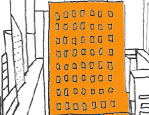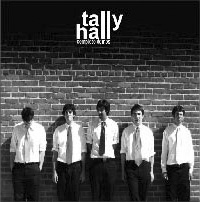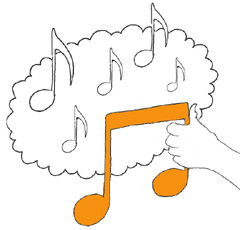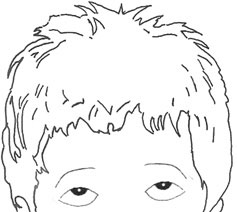|
||||||||||

|
||||||||||
Intellectual Property |
||||||||||

|
If you have ever authored, created or invented something you were really proud of you have probably thought about sharing it with the world…with maybe one hesitation. What if somebody were to steal your "bright" idea? | 
|
||||||||
Downloading Music Here to Stay"Without the ability to download music, Tally Hall would be nowhere. We are an example of a band that survived because of people downloading our music." We talk to the members of Tally Hall, a young rock band from Ann Arbor, Michigan (USA) who tell us how they have approached songwriting, sharing their music online, and working to become the next big thing. Read the interview 

|
Think About It |
|||
|
The simple way to explain intellectual property (IP) is to understand that all great expressions and products have an origin. A work of music, art, writing, film, or computer software belongs to its creators. Your ideas, creativity, and inventions have a lot of value and must be protected.
>>Learn how to protect your work and share it on your own terms. Appreciate the rights established by others. Intellectual property does not just apply to artists it applies to everyone who dares to express themselves! |
||||
What does Intellectual Property have to do with Online Safety? |
||||
Technology has advanced to a state where previous copyright codes and laws no longer fit. Just as you need to be aware of faceless Internet users profiting from your work, it is imperative that you become responsible for your own Internet habits and actions that could get you into trouble. |
||||
The 3 Ps of IP |
||||
|
Piracy: A term used to describe when electronic and audio-visual media such as music, movies, and software undergo unauthorized reproduction and distribution, particularly for commercial gains.
Peer-to-Peer (P2P) File Sharing: The process of making files available to other users over the Internet for downloading purposes. P2P Services are software and online services that allow files to be shared among users. Plagiarism: The act of passing off someone else's written text as your own without crediting its author or source. What You Should Do Many people differ on the definition of piracy when it comes to files for download on the Internet. While some see it as an obvious infringement of copyright law, others believe ownership is more complex. The best solution is to be informed and aware of the laws in your country and respect them as best you can. In some parts of the world copyright laws are nonexistent or not enforced. And as for plagiarism, while the Internet provides easy access to research and information, every time a phrase, thought or paragraph is borrowed, it is imperative to credit the original author. |
||||
The Creative Commons Option |
||||
The Bigger PictureFor more on intellectual property, read TIG member Liz Livelli's excellent article, "Get Your IP Straight." The article will tell you all you need to know about industrial property, like patents, trademarks, industrial designs, and geographic indications of source, as well as copyright and rights related to copyright. Click here! 
|
I want to copyright my work, but I want to set my own conditions. What are my options?
TIG member, Alberto, has written a short story called Popo the Mouse – A Deleterious Tale. Fun, fictional, and fantastical, his story is available online to download but is also for sale through the web. To protect his work, Alberto has attached a Creative Commons license to his story. We asked him why he chose to license his work in this way. TIG: How did you learn about Creative Commons? I learnt about Creative Commons at a seminar on IP, copyright and the arts during my MA (at Goldsmiths College University of London) as one of those involved in the Creative Commons was an alumni of the University. TIG: Why did you license your work through them? I was looking for something that would balance copyright with the opportunity to gain outreach for the story I wrote. Not being an actual writer or someone who has ever been published, and neither a famous cooks husband turned writer, it's a hard challenge to find a just balance between wanting to get your work out there and having some rights over your intellectual property. Creative Commons provides this balance as both a network and a framework where "some rights are reserved".
TIG: Creative Commons offers many variations of licenses. How did you figure out what was right for you? I chose a license that enables anyone to publish and use my work on their site, publications etc. free of charge at the only condition of notifying me (I wouldn't want it to be placed somewhere I am not comfortable associating with), recognizing my authorship and that the use is non-commercial. In all other cases an agreement/contract would be needed. I found this to be the perfect balance between reserving some rights (especially for commercial uses or having a say when I don't agree with the use) and at the same time allowing people to freely share the story if they like it. For more about the range of licenses offered by Creative Commons visit their website. To read (or purchase) Alberto's story |

